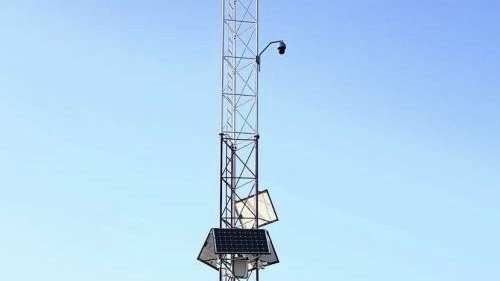2 Years After, N3 Billion Zamfara CCTV Cameras Failed To Stop Terror Attacks
Two years after CCTV cameras were installed to combat insecurity in Gusau, Zamfara's capital, terrorists have continued to attack residents.

Nearly two years after the Government of Zamfara, Northwest Nigeria spent N3.2 billion to procure and install CCTV cameras ‘to increase and upgrade the security and surveillance within the metropolis in Gusau, the capital’, terrorists have continued to attack the city unfettered.
Zamfara State has been the hardest hit by terrorism in Northwest Nigeria, with daily reports of attacks, pillages, kidnapping, and other forms of violent insecurity.
In 2020, the Zamfara State Government spent “more than N3 billion” on procuring and installing CCTV cameras to combat the threat of insecurity that afflicted the state and its capital’s entire local government areas.
Various measures aimed at reducing insecurity and providing long-term peace, such as shutting down mobile networks and considering amnesty for terrorists, failed to produce the desired positive results.

The CCTV cameras were installed in strategic locations throughout Gusau, but residents and analysts say the project has had no expected positive impact since its implementation, and the goal of spending the money has not been met as kidnappings continue to occur in the city.
In March 2021, terrorists attacked the house of Babangida Damba, a former councillor of Damba ward, and abducted his wife and an eight-month-old baby, three days after a letter was sent to the Federal College of Education Technology (FCET), Gusau, threatening the school with an attack.
None of these incidents were prevented by the CCTV cameras that were installed.
Other attacks include the kidnapping of Maryam Jagaba, an FCET Gusau employee, and her two daughters, Maryam Abdulrazak and Hafsat Abdulrazak, on Jan. 4, 2021.
The terrorists returned a year later, on Jan. 12, 2022, and kidnapped Anas Bashiru, another FCET employee.
The abduction of five family members of Abdulrahmn Adamu, Chairman of the Academic Staff Union of Universities (ASUU), Federal University Gusau chapter, was the most recent attack.
Residents have expressed their dissatisfaction with the CCTV project via the microblogging site, Twitter.
Yusuf Anka, a security analyst and Zamfara resident, stated that there have been major issues with the project since its inception, ranging from the politicisation of its objectives to technical flaws that have hampered the project’s success.
Despite numerous cases of unrecorded security breaches, Anka claims that the first arrest made using CCTV was of then-major opposition candidate Abubaka Dan-Tabawa, who was meeting with his family members but was accused of gathering terrorists.
Anka went on to say that instead of focusing on the terrorists attacking the state, the project was repurposed to target politicians perceived to be the governor’s enemies.
Muhammad Matawalle, the Governor of Zamfara State has accused politicians in the state of fanning the flames of insecurity by undermining his administration’s efforts to end the crisis.
Anka also pointed out that the CCTV system was missing some critical features that would allow it to function properly.
“I heard there is no proper database storing the recorded footage,” he said. And if this is true, it means that recordings are not subjected to forensic examination, and some of their components may not function properly.
According to a forensic expert who spoke with HumAngle but pleaded not to be named, the problem with the project could be due to the security guards who manage its system.
“You need to know the operators who interface the system on a daily basis, because no matter how effective the CCTV coverage is, if you don’t have people who are very good at surveillance, a lot of things can happen without being traced,” he explained.
According to him, CCTV cameras that record multiple locations require specific operators and forensic experts who must manage it on a timely basis if success is to be recorded.
HumAngle had tried to contact Zamfara Police Command to learn how the CCTV system in Gusau works to help in providing security, but the Police Public Relations Officer did not answer the phone calls. He also did not respond to the message that was sent to him by our reporter.
HumAngle, however, spoke with residents, and a tricycle rider stated that even if the CCTV is achieving any positive impact, the people of Gusau have not seen it because attacks have continued in various locations throughout the Zamfara capital.
Support Our Journalism
There are millions of ordinary people affected by conflict in Africa whose stories are missing in the mainstream media. HumAngle is determined to tell those challenging and under-reported stories, hoping that the people impacted by these conflicts will find the safety and security they deserve.
To ensure that we continue to provide public service coverage, we have a small favour to ask you. We want you to be part of our journalistic endeavour by contributing a token to us.
Your donation will further promote a robust, free, and independent media.
Donate HereStay Closer To The Stories That Matter




